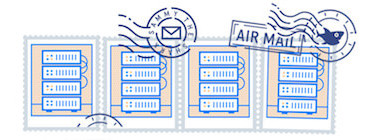
Introduction
DigitalOcean Block Storage allows you to attach additional storage volumes to your Droplets quickly and easily. Block Storage volumes function like regular block devices when attached to your servers, allowing you to use familiar tools to manage your storage needs. In this series, we will introduce basic Linux storage terminology, cover how to create and manage Block Storage volumes, and how to perform a variety of administrative tasks to keep your volumes running smoothly.
// Tutorial //
An Introduction to Storage Terminology and Concepts in Linux
Linux has robust systems and tooling to manage hardware devices, including storage drives. In this article we’ll cover, at a high level, how Linux represents these devices and how raw storage is made into usable space on the server.
// Tutorial //
How To Configure Periodic TRIM for SSD Storage on Linux Servers
Continuous use of SSDs results in degraded performance if not accounted for and mitigated. The TRIM command is an operation that allows the operating system to propagate information down to the SSD about which blocks of data are no longer in use. This allows the SSD’s internal systems to better manage wear leveling and prepare the device for future writes. Continuous TRIM is possible, but can negatively impact performance. Scheduled, periodic TRIM is a good alternative in most cases.




